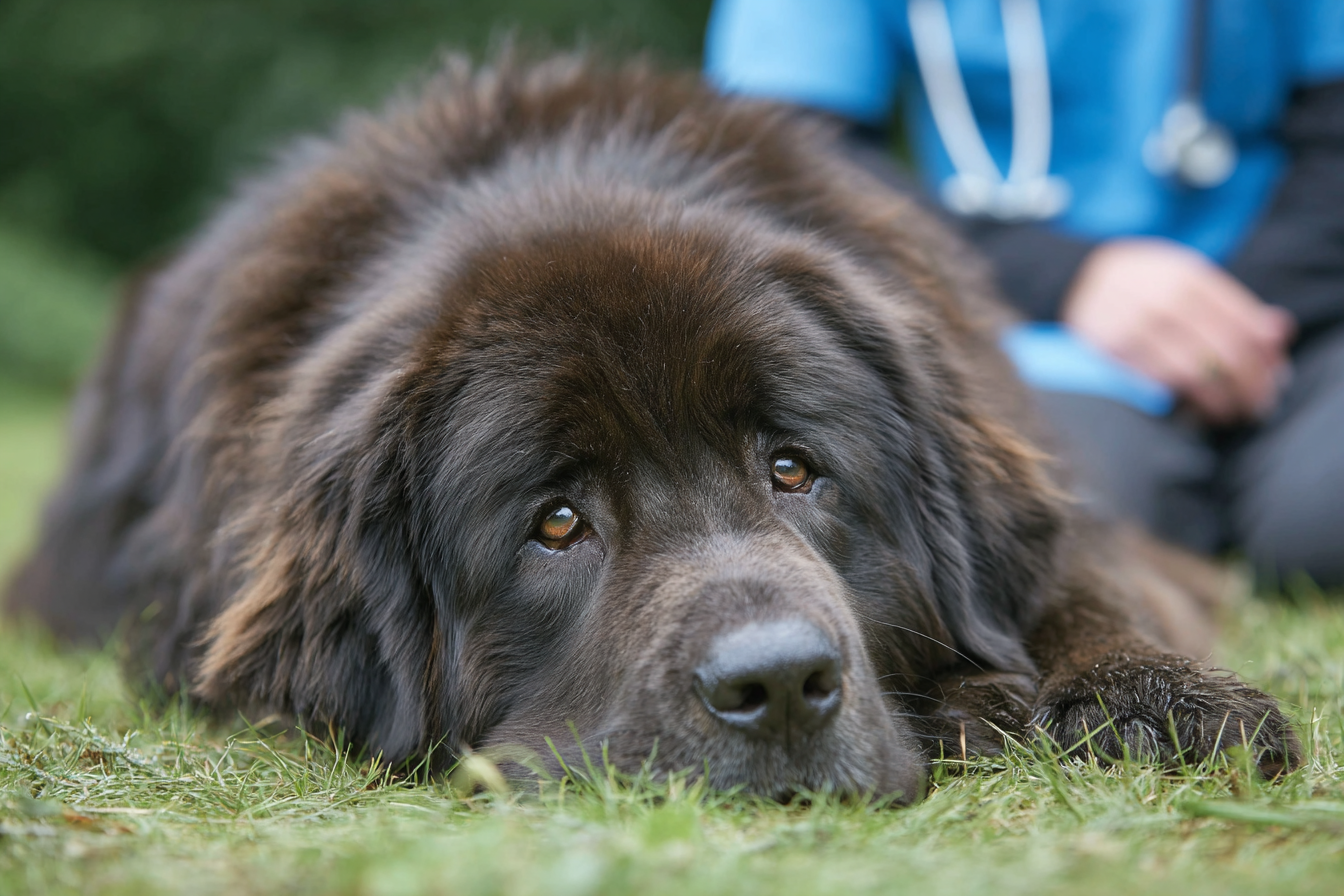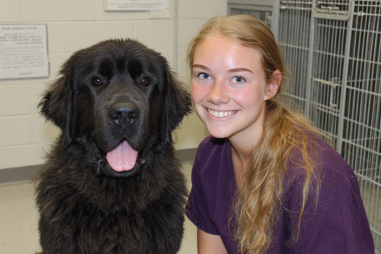Newfoundland dogs are beloved for their gentle nature, impressive size, and striking appearance. As with any large breed, however, they are predisposed to certain health conditions that owners should be aware of. Understanding these common Newfoundland dog health issues is essential to providing the best care and ensuring your furry companion lives a happy, comfortable life. This article will explore the key health concerns affecting Newfoundlands and offer guidance on how to prevent and manage them effectively.
Overview of Breed-Specific Health Risks
Newfoundland dogs are known for their strength and endurance, but their size and genetics can also predispose them to specific health issues. Being a large and heavy breed, they often face challenges related to joints, heart health, and metabolic conditions. Many of these health risks are inherited, meaning responsible breeding practices play a significant role in reducing their prevalence. Early detection and routine veterinary checkups can help mitigate the impact of these conditions, allowing your Newfoundland to thrive for years to come.
Hip and Elbow Dysplasia
One of the most common musculoskeletal problems in Newfoundlands is hip and elbow dysplasia. These genetic disorders involve abnormal development of the joints, causing joint instability, pain, and arthritis over time. Hip dysplasia affects the hip socket’s fit for the ball of the femur, while elbow dysplasia involves issues in the elbow joint’s cartilage or bones.
Symptoms include difficulty standing up, limping, stiffness, and reluctance to move or jump. Given their size and weight, Newfoundlands with dysplasia can experience significant discomfort if not managed properly.
To manage dysplasia:
- Maintain a healthy weight to reduce joint stress
- Provide regular low-impact exercise, such as swimming or gentle walks
- Consider joint supplements containing glucosamine and chondroitin
- Use pain medications or anti-inflammatory drugs prescribed by a vet when necessary
- In severe cases, surgical intervention may be recommended
Heart Conditions Including Subvalvular Aortic Stenosis
Newfoundlands are predisposed to specific heart diseases, with one of the most notable being subvalvular aortic stenosis (SAS). This condition involves a narrowing just below the aortic valve, impeding blood flow from the heart to the body and forcing the heart to work harder. SAS can lead to heart enlargement, arrhythmias, and, in severe cases, sudden death.
Signs of SAS or other heart-related problems include:
- Exercise intolerance or fatigue
- Coughing or difficulty breathing
- Fainting or collapse
- Abnormal heart sounds detected during veterinary exams
Regular cardiac screenings, including echocardiograms, are essential for early detection. While there is no cure for SAS, management strategies include limiting strenuous exercise, using medications to support heart function, and consistent veterinary monitoring.
Hypothyroidism and Other Issues
Hypothyroidism, a condition where the thyroid gland produces insufficient hormones, is also seen in Newfoundlands. This hormone deficiency can cause symptoms such as lethargy, weight gain despite reduced appetite, hair coat changes, and skin problems. Left untreated, hypothyroidism can negatively affect your dog’s overall well-being.
A simple blood test can diagnose hypothyroidism, and it can be effectively managed with daily hormone replacement therapy.
Other health issues occasionally seen in the breed include cystinuria, which affects kidney function, and von Willebrand’s disease, a bleeding disorder. Regular checkups and genetic testing for breeding stock can help reduce the incidence of these conditions.
Preventative Veterinary Care and Monitoring
Routine veterinary care is crucial to keeping a Newfoundland healthy. Aim for biannual or annual checkups depending on your dog’s age and health status. During visits, your vet will perform a thorough physical exam, monitor weight, listen to the heart and lungs, and possibly recommend blood work or imaging studies.
Regular vaccinations, parasite control, and dental care are fundamental parts of preventative health care. Additionally, discuss any breed-specific tests, such as cardiac screening for SAS or hip and elbow evaluations, with your veterinarian to catch potential problems early.
Diet and Exercise Recommendations
Proper nutrition tailored to the needs of a large breed like the Newfoundland can play a pivotal role in preventing obesity and supporting joint health. Feeding a balanced diet that is rich in high-quality protein, omega fatty acids, and supplemented with joint-support nutrients can improve overall health outcomes.
Limiting treats and avoiding overfeeding helps maintain an ideal weight, reducing stress on joints and the heart. Controlled exercise that avoids high-impact activities can also prevent injuries and stress on developing bones and joints, particularly in puppies and young dogs.
Swimming is an excellent exercise for Newfoundlands, as it is low impact and builds muscle strength without stressing the joints. Daily walks, mental stimulation, and interaction are equally important for their wellbeing.
Signs to Watch For
Being vigilant about changes in your Newfoundland’s behavior or physical condition can help you catch health issues early. Some key signs to watch for include:
- Changes in gait or reluctance to move
- Persistent coughing or difficulty breathing
- Sudden weakness, fainting, or collapse
- Noticeable weight gain or loss
- Skin problems like excessive dryness, hair loss, or growths
- Excessive thirst and urination
- Changes in appetite or energy levels
If you notice any of these signs, a prompt veterinary consultation is advised to diagnose and manage any underlying issues.
Ensuring a Long and Healthy Life for Your Newfoundland
Newfoundland dogs bring immense joy with their loving and gentle demeanor. While their size and genetics predispose them to certain health challenges, proactive care, regular veterinary visits, appropriate diet, and mindful exercise can significantly improve their quality of life. By learning about common Newfoundland dog health issues and taking preventative steps, you create a strong foundation for many healthy, happy years with your gentle giant.







